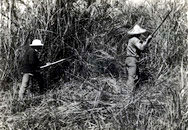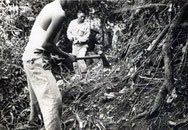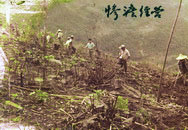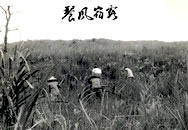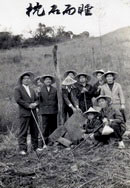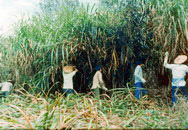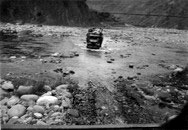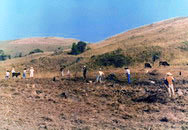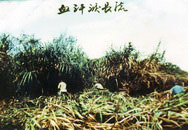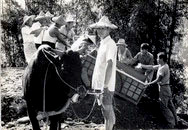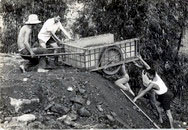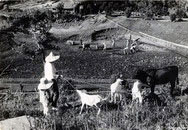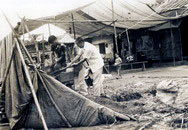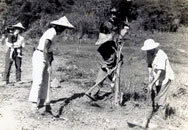Developing the Land
Mount Zion (formerly known as �侻huang-lian-ku��) was originally a deserted and uninhabited mountainous land with no accessible roads. In 1963, under God�䏭 leading, the Prophet of All Nations Elijah Hong and a few others traveled across mountains and rivers, and arrived at this land. They cultivated the land and reared livestock, at the same time praying and waiting upon God to reveal the spiritual leader. When the Prophet of All Nations first arrived on the mountain, he lived out in the open, used a stone for a pillow, and endured poor living conditions. In 1964, Taiwan�䏭 provincial government released an announcement, encouraging farmers in all over the province to use the unoccupied mountains, and to apply for the right to use the land. After surveying and dividing the land, the authorities concerned would either let out or lease the land without term limit to the applicants. Elijah Hong and companions made legal applications to the governmental authority, paid all required fees, obtained legal right to use the public mountain land, and paid taxes on time. At the end of 1965, Elijah Hong met the Lord�䏭 maidservant, Sis. Kong, in Taipei and returned to the New Testament Church. He later invited some church members to go up to the mountain to assist in developing this piece of land. At the start of 1967, the three families of Liu Zai-Ci, Tan Shao-Xing, and Liu Yang-De were the first to go up the mountain. From then on, the saints who went up the mountain gradually increased in number. In 1973, the government promulgated an agricultural development rule that clearly stated, �乪hen the cultivation of the land is complete, the farmer(s) will have the unlimited right to use the land without additional fees. After five years of continuous operation, farmer(s) will obtain land ownership without any condition.�� According to the law, the people of Zion had rightfully gained legal ownership of this land.
Among the people of Zion who joined in developing the land were civilians, retired soldiers, the young, the single, those with families, those who sold off family possessions, and those who offered up their retirement pay. Dozens of them willingly offered to the Lord what they had. They were pioneers in opening up the land. They took great pains and difficulties in running the farm�𨰣rom rearing goats and planting ginger, to growing a variety of grains, produce, and fruit trees. Later, they began massive reforestation projects and raised domestic fowls and livestock to diversify the enterprises. However, there were countless difficulties and hardships right from the start. Faced with the vast mountainous lands, the people of Zion had a great shortage of manpower. The agonies of desolation, trials in cultivation, and the constant shedding of blood, sweat, and tears were hard to imagine. Apart from these, their sheep often fell sick and died, gentiles attempted to seize their land, and evil men ruthlessly evicted them. During the early years, the land had no access road. They had to lug on their backs all their daily necessities up this mountain from a town far away, no matter how heavy the load. Journeying to and fro between the town and the mountain would take the whole day. Moreover, during the rainy seasons, all the rocks on the riverbed would be covered with water. They had to make a detour and trek through the mountains, taking many times longer than usual.
After many years of blood and sweat, and after millions of dollars of investment, the enterprises in crop farming, reforestation, fishing, and livestock farming have made much progress. Through the harmonious coordination among the people of Zion, the once desolated mountain has now become a beautiful and glorious Eden.

